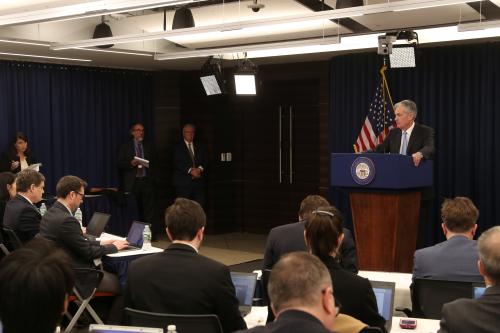

11:00 am EDT - 6:00 pm EDT
Past Event
11:00 am - 6:00 pm EDT
1775 Massachusetts Avenue N.W.
Washington, DC
20036
After nearly a decade of strong productivity growth starting in the mid-1990s, there has been much slower growth since then. Output per hour worked in the US business sector has grown at only 1.3 percent a year over the period 2004 to 2015; and growth has been even slower from 2010 to 2015, at just 0.5 percent a year. These rates are only half or less of the pace of growth achieved in the past. The United States is not alone in facing this problem, as all of the major advanced economies have also seen slow productivity growth. This growth weakness has been a major determinant of weak overall GDP growth, stagnation in real wages and household incomes and it strongly impacts government revenues and the deficit.
On September 8, 2016 the Initiative on Business and Public Policy and the Hutchins Center hosted a series of roundtable discussions of technical issues surrounding the productivity slowdown.
On September 9, 2016, we hosted a public event on the policy implications of the growth slowdown, where Martin Baily presented an overview paper on the causes of the slowdown, followed by a panel discussion on the most effective policies to enhance productivity performance. Click here for more information on Friday’s program.
11:00 am - 12:15 pm
Moderator

Panelist



12:15 pm - 1:00 pm

1:00 pm - 2:40 pm
Moderator

Panelist




2:40 pm - 3:00 pm
3:00 pm - 4:40 pm
Panelist



4:40 pm - 4:45 pm
4:45 pm - 6:00 pm

Glencora Haskins, Tracy Hadden Loh
March 5, 2026

David Wessel
March 5, 2026

Kari Heerman
March 5, 2026